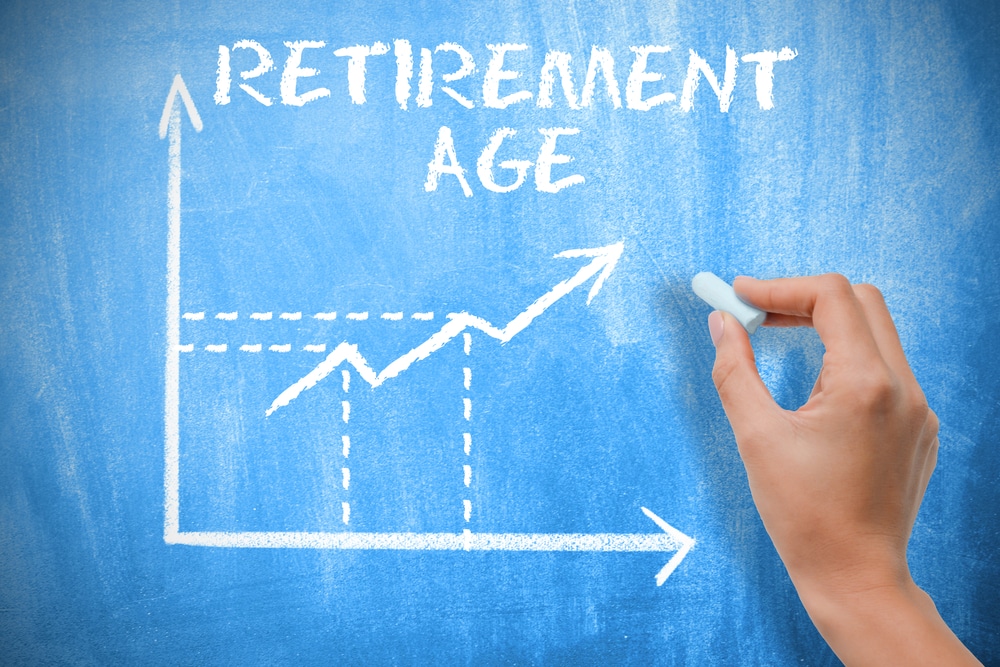Jasmine Birtles
Your money-making expert. Financial journalist, TV and radio personality.

The State Pension has changed beyond recognition in recent years. If you’re 55 or over, it’s important to get to grips with the changes, so you can take advantage of any benefits – and are not caught out by any nasty surprises.

This was introduced back in April 2016, and in principle means everyone who retires after that date is entitled to the same pension payment.
However, in order to qualify for the full payment, you will need
If you are concerned that any of these exceptions may apply to you, it’s worth getting a State Pension forecast.

Before April 2016, the State Pension worked on a two-tier system. There was a basic state pension, received by almost everyone, and a state second pension (S2P). The latter was based on the contributions you made into it. These, in turn, were based on your salary and number of years of contributions.
The dramatic change in the system risked penalising those with large S2P contributions. It means that the new system has transition arrangements built in. These calculate what you have built up under the old system, and what you have built up by April 2016 under the new system. It then uses the higher of the two figures as your ‘starting amount’. After April 2016, any further years that you pay National Insurance will be added to that starting amount, until you hit the flat rate State Pension.
If you built up more than the flat rate under the old system, that will be protected, and you will receive the higher amount. However, any further National Insurance contributions made from that time onwards will not add to your State Pension.

You can apply to see your National Insurance record through the government website or call its helpline on 0300 200 3500.
However, you can’t use this service
Here you will be able to see how many years of National Insurance contributions you have made so far.
Bear in mind that the Class 3A contributions, the short-term top-up option, expired in April 2017, so you will no longer be able to top up your state pension by up to £25 a week by paying an additional lump sum.
For those who have been unable to work, either due to long-term illness or caring responsibilities, you may be able to get additional National Insurance credits.
What’s more, those who are in receipt of Child Benefit (with a child under 12), Working Tax Credit, Universal Credit or Carer’s Allowance, you will automatically get these extra NI credits
However, there are some scenarios where you will have to make an application, but you will need to wait until the tax year – which runs from 6 April to 5 April – is over before you can apply for credits for the previous 12 months.
To find out more, take a look on Gov.uk.

Traditionally men retired at 65 and women at 60, but in an age of gender equality and with an ageing population, the government decided that this wasn’t sustainable.
The State Pension age has been rising for women since 2010. The first rises were gradual, but the process was subsequently accelerated, so that in 2018 it was suddenly 65.
At that point the State Pension age rose for both men and women to reach
It will then rise in line with longevity. It is broadly expected that young people in work today will not receive a State Pension until they are in their 70s at least.
You can check your predicted State Pension age at Gov.uk’s State Pension age calculator.

In the past, if you had a defined contribution pension (DC pension), you would eventually have to use your pension pot to buy an annuity. An annuity is a kind of insurance product whereby you are paid a fixed amount every year until you die, whether that’s three years or thirty three years (or more!). The amount you get depends on your age, how much you have in your pot and what interest rate the insurance/pension company offers you. It’s very important, therefore, to shop around for the right annuity if you do go for one.
Since April 2015, though, pensioners have had far more freedom. Now when you retire you don’t have to buy an annuity.
Now you are able to access your pension pot at the age of 55.
You can get more details from the Pensions Advisory Service, and guidance relating to your own circumstances from the government information service Pensions Wise.

if i have over 30 years n.i.c. on my retirement at 65 what happens the extra years paid
I deferred my state pension in January 2010 . I dont want to take the lump sum because it is taxable. Can I claim my state pension now, even though I am still working? I have no savings as I returned to work just before I reached 60 due to personal circumstances. I have no private pension either. I thought I I pick up the state pension now, I can put it into a savings account and accrue some interest on it when I do retire. I am female. This will probably when I am 90 at this rate! Thanks… Read more »
should have proof read my post, too many ‘I’ hope it makes sense 🙂
Hi
I receive a reduced pension as I worked a mix of full and part-time over the years and did not accumulate 30 years of National Insurance payments. At the time I was advised that I need not pay full National Insurance to get a full pension. It may have suited my employer.
It has come to my notice that there are situations whereby a full pension may be paid in such circumstances above or where time has been taken off to look after children. Is this correct?
Once I have accumulated 30 years of national insurance payments am I still liable for payments if I continue in full time employment?
Sadly you do still have to pay I’m afraid!
After my wife retired this year, I have been considering the options of joining her in retirement due to me suffering from cancer.
Although I have not reached retirement age myself, I have read the article on the opt out of work for men under 60 for £202 a week pension credit. I have paid my national insurance contributions for 35 years.
Would I still need to pay my national insurance contributions if I join my wife in retirement, and if so, how much will it be, and where do I send the payment.
Kind Regards,
Peter
Hi Jasmine,
I am registered disabled and rceive the higher mobility DLA. I was told that although now 58 yrs old that I would receive my pension at 60 yrs of age- not 62 yrs and 8 mths due to the changes in pension age. Is this still the same? Many thanks. Mary
There are also proposed changes which I don’t think you have mentioned where women in a certain agegroup (around 56+) may have to work until they are 66 (see Direct.gov website). Totally unfair as we are unprepared for the speed in which these changes may well be implemented.
What happens if you are not married, but have been living with your partner for years??
You don’t qualify. You have to be either married or gay and in a civil partnership. Even if you’ve lived together for years you don’t have a connection to their pension.
Will I be entitled to receive an increase in my pension as I am now 65 yrs old. I have been receiving the pension since I was 60 but I wonder if it will be going up.
You fail to point out that this Government as failed to honour the promise made by the government of the day that when they introduced the Graduated pension and the Serps they stated that they would increase at the same rate as the basic pension. This government are not paying any increase on this part of the pension for 2010/11. I think you should bring this point out in the open where ever youcan and as often as possible
I’ve had a few different jobs over the years since starting work after university; 3 longterm ‘permanent’, a couple ‘temporary’ through temping agencies. How do I find out if I’ve paid enough contributions over the years?